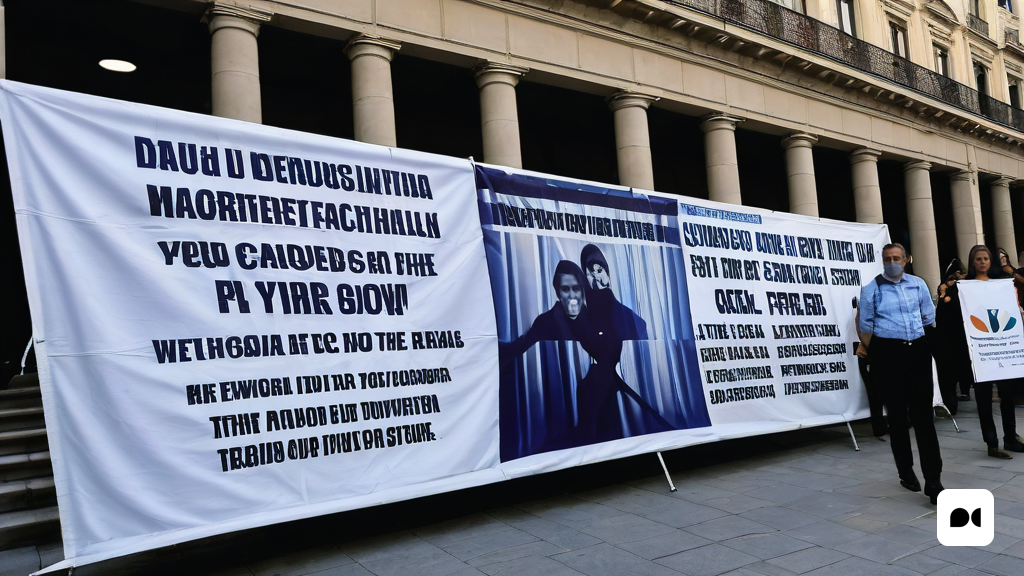The Number That Reveals Tragedy
In the heart of the city, two gigantic canvases displayed a heartbreaking number: 7,291. This number, a grim reminder of the forgotten victims, became a symbol of outrage and the demand for accountability.
The tarps, strategically placed in crowded places, showed the figure along with a forceful message: “No. They were not going to die the same way.” It was a reminder of the government’s tragic management of the pandemic, which had left thousands of older people neglected and vulnerable in care homes.
Silenced Opposition
The Popular Party, the ruling party, was quick to take action. They filed a lawsuit with the Electoral Board, alleging that the tarps constituted covert electoral propaganda. The Board, in a controversial decision, ruled in favor of the government, ordering the removal of the tarps.
The opposition denounced the decision as a “gag” and a blatant suppression of freedom of expression. They argued that the banners did not contain any explicit electoral message and were simply seeking to raise awareness about a national tragedy.
The Persecution Continues
The battle for memory did not end there. The Municipal Police, under the direction of the mayor of the Popular Party, José Luis Martínez-Almeida, visited the residents of the park where one of the tarps had been placed. The officers, citing a non-existent ordinance, threatened to fine the community if the tarp was not removed.
The neighbors, outraged by the intimidation, refused to give in. The president of the community declared that the agents had tried to pressure them, warning them of possible “reports of hate crimes” and the presence of the media.
The Power of Visibility
Despite the government’s efforts to silence the opposition, the tarps served their purpose. The media and political persecution only served to amplify his message, reaching a broader audience.
The opposition was defiant, declaring that they would not be silenced. They vowed to continue fighting for justice and accountability, and to honor the memory of forgotten victims.
The Battle for Truth
The battle over the 7291 tarps became a symbol of the broader fight for truth and accountability in a divided society. The government, determined to hide its role in the tragedy, resorted to censorship and intimidation.
But the opposition, supported by an outraged citizenry, remained firm. They defended the right to remember, to demand answers and to guarantee that the victims of the pandemic were not forgotten.
The battle for memory continues, a battle for truth, justice and accountability. And in this battle, the opposition has shown that, even in the face of adversity, the voice of the people cannot be silenced.

